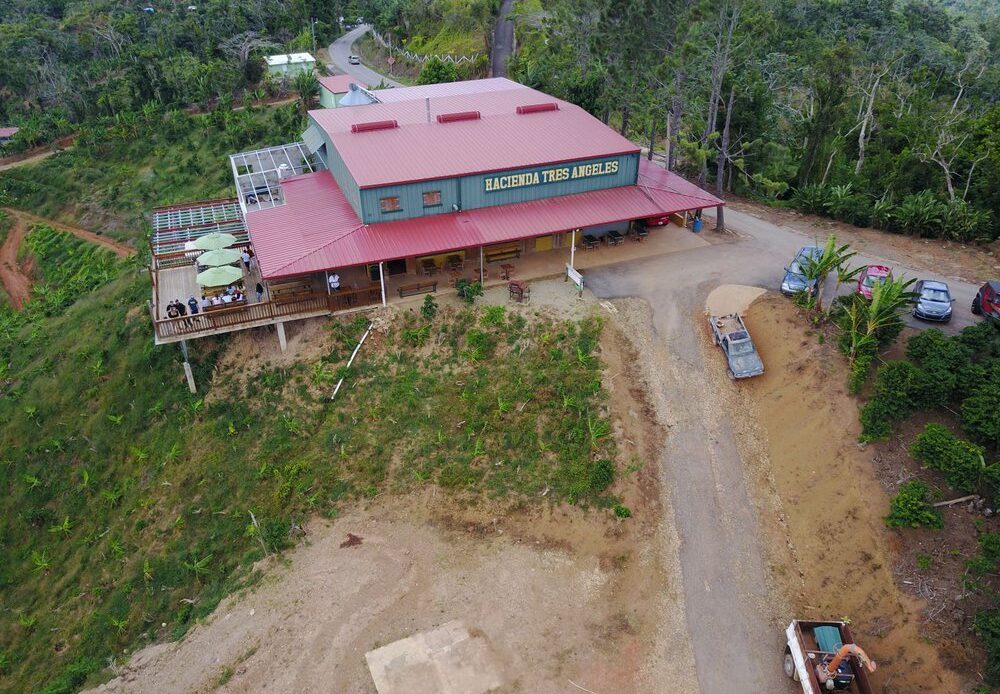A family-owned coffee farm in Adjuntas, Puerto Rico, Hacienda Tres Ángeles teaches visitors about the coffee making process from “crop-to-cup.”
Hacienda Tres Ángeles
Coffee trees blanket the mountainsides around Puerto Rico’s Adjuntas, an inland municipality known for its cool climate, meandering rivers and rolling terrain. The area is home to nearly one third of Puerto Rico’s locally consumed coffee.
It’s also where you’ll find Hacienda Tres Ángeles, a family-owned coffee farm that teaches visitors about the coffee making process from “crop-to-cup.” The hacienda’s owners, Juan Luis Meléndez Mulero and his wife, Naomi Gomez, run weekly tours of the property, bringing visitors to the fields to teach them about their agricultural practices, and then later offering samples of the finished product. In 2014, Hacienda Tres Ángeles became the island’s very first farm certified under what was then Puerto Rico Tourism Company’s (PRTC) new agritourism program, an initiative designed not only to introduce Puerto Rico’s farming culture and traditions to the outside world, but also to improve farmers’ economic stability in the process.
The use of the word “agritourism” can be traced back to Italy’s agriturismos—working farms that have been adapted to accommodate guests, whether it’s through meals, activites, overnight stays, or a combination of each—that first became popular during the 1970s and ‘80s. Today, agritourism has become an increasingly popular way for farmers to make ends meet across places like the Philippines, France and the contiguous United States—in many cases, even during the pandemic.
Hacienda Tres Ángeles is one of 32 certified agritourism projects that currently exist throughout Puerto Rico, inviting both travelers and local residents to experience the island’s agricultural practices and traditions firsthand through everything from harvesting their own salads to touring a breadfruit processing plant. Not only do these programs (part of the PRTC’s larger sustainable tourism initiatives) boast the island’s tourism opportunities, but they allow properties to get creative with their offerings and earn some extra income along the way. The agricultural certification program has been especially poignant in the wake of 2017’s Hurricane Maria, a…
Click Here to Read the Full Original Article at Travel | smithsonianmag.com…
